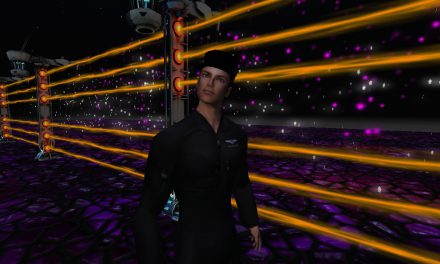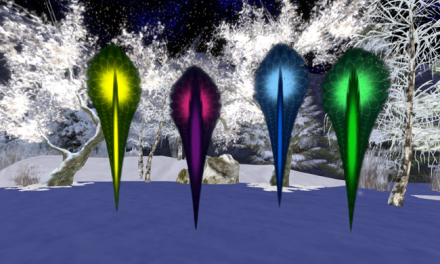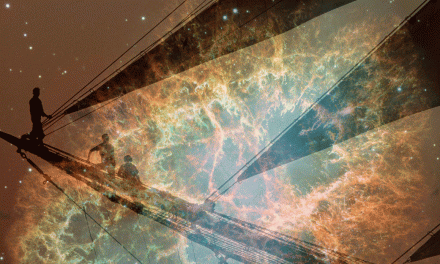
Sudden Light
By
Regina Clarke
Aaron walked around the corner of the house and came toward her. Behind him rose the hills of Morongo Valley, dry sand hills spotted with brush that made Cassie think of pale leopards.
He had chosen to stay with her. What did that feel like, Cassie wondered, letting go of everything you cared about and loved the way he had done? For her it had been easy. Leaving what she had back in Phoenix had been a blessing, escaping the dull job and the desperate heat and the eternal air conditioning, and most of all the sameness of how people lived their lives.
“Where’s the watering can?” he was asking.
Cassie looked at him and smiled.
“In the shed, where it usually is.”
He brushed his hand through her hair absently and went off on his errand. Keeping the small strip of grass on the side of the house as green as he could was a passion, a foolish one, she told him, for out here.
Out here. She’d left one place and come to another that was just as hot and dry, filled with all the routine of a dull job and desert heat she could want. Nothing had changed—except there was Aaron.
The day Cassie met him should have been a day of rock climbing, the boulders in Joshua Tree Monument Park recommended to her, novice that she was, as a place she could practice alone. The sheer sides and height were more than she had expected, though, and demanded more than she could manage. That first day there had been no climbing.
To get there she’d driven through the plain below the San Bernardino range, past the wind farms with their silver arms looking like a peculiar forest, on up through Morongo and into Twenty-nine Palms. The town lay flat and uninspiring in the middle of the desert, but there was an energy in it, just the same, something she couldn’t put her finger on. It had a military base in operation nearby.
A cafe stood at a fork in the road, the left path beyond it heading northwest, the other path turning east, toward the entrance to the park a quarter mile away. The gravel drive in front held just a few cars. The place was dark and cool, more like a saloon than a cafe, catering to the locals, with a fan in the ceiling and cold beer. In some odd way she felt welcomed, though she spoke to no one but the waitress.
Her next stop that first day had been the small museum and information building on the edge of the park. Geology and wildlife videos were offered for study there, if she wanted to learn about the area. Passing through the room, past exhibits, she felt herself absorbing their presence and that was enough.
The woman behind the counter wore a National Park uniform, and looked competent, confident in her work. Cassie wondered, as she always did in places like that, whether it wouldn’t be the perfect kind of job to have, no pressure, doing something valuable, involved in nature, a settled life, something certain, assured. She put the idea away. Romanticizing something she had no knowledge about was a foolish thing to do. Maybe for that woman it was as dull a job as hers had been back in Phoenix. Maybe.
Finally, she had driven up the narrow access road where a park ranger took her money and gave her a pass. He looked certain and self-assured, too, wearing silver and turquoise jewelry and a beaded belt in his uniform, handing out her change with a formal greeting. He seemed to know who he was, and why he was there in that small five-foot square station, no trees to shelter him, a radio playing soft music. Would he make a good husband, she had wondered at the time, and of course had let the idea go, though wishing, wanting. He was a perfect stranger who had forgotten her before she had put the car in gear. Not real, she reminded herself. But she knew what the loneliness had come to mean, then.
A narrow road took her through the rock-strewn desert that was Joshua Tree. It was hot, the sky a stark blue, and far away on the horizon lay the mountain range. What held her attention were the trees, short and stunted, branches pointing upward with spiked leaves, a maze of them as far as she could see. They dotted the land like so many praying acolytes, she thought. Spaced widely apart, no two of them crowding, the space between them filled with smoke-colored brush and holes that snakes had burrowed into.
They made her think of the low scrub that lined the soft slopes of Cape Cod in the long-ago summers of her childhood. The back roads were less traveled in those years, the roads out to Falmouth and Truro, and for miles the rolling inclines stretched toward an invisible sea. The scrub was just her height, as if it had been made for small people, and the idea had made her happy, as a child.
After driving a short distance she parked on the shoulder of the road and got out. Joshua Tree was empty except for an occasional car passing by and breaking into its stillness. An eagle flew high overhead. By the side of the road were long flat rocks hot to the touch, and Cassie sat down on one and stared across the road at the sea of strange, knobbed trees.
After that, she got into the habit of driving to the park every Saturday, choosing a different spot each time, planning to practice her climbing. Instead, she would find the afternoon shadows had come and all she had done was stare at the landscape. She couldn’t say why, not really. It became a ritual, and it made her happy. That was enough.
It was on the seventh visit that a man appeared before her on the road. He startled her so much she jumped up, scattering bits of her lunch over the desert sand.
“I am sorry,” he said immediately. “We were warned to be careful, not to upset anyone.”
In the west the sun had gone, leaving long blue shadows to creep up the sides of the boulders. Her car was ten feet away. She looked at him, this sudden stranger, and spoke casually as she dared to move closer to where she was parked.
“Now I have indeed failed,” he said to her, “for I have frightened you. But wait. I can make it better. I think so.”
She felt the stream of thoughts, as if an arrow had pierced through her brain, but there was no pain. Like a channel of flowing water, Cassie thought. Her mind shut down, or it later seemed to her that it must have, for when she recognized her surroundings again it was full night, a quarter moon rising above the rocks nearby. The man was gone.
She picked up her purse from the ground and turned in a full circle. Nothing but the whispering sound of a desert wind. The Joshua trees beckoned in their curious way, their uplifted branches illuminated in the silver light.
The car started easily. Cassie stared once more at the landscape before shifting into gear. It didn’t bear thinking about, she decided. I fell asleep, and had a dream. Just another dream.
The weeks came and went and she stayed away from the park. Despite the tedium of her daily job she could still bless the freedom from Phoenix and embrace her new life. More was not required.
Yet there were unaccountable changes.
Cassie sensed she felt lighter. Old, unhappy memories didn’t crowd her thoughts the way they had before. When she drove into the nearby small, dusty town she found herself wanting to talk to the people she encountered at the grocery store or in the diner. She was no longer wary of being part of their lives.
Most of all what she felt was a sense of anticipation. It was strongest when she woke in the morning, the lingering sensation of a dream, so vivid, as if she was more awake than asleep. In it she was passing through a forest of crystal trees barely as high as her shoulder, each one in its own clearing, with colors that sang in luminous tones.
The sensation of something pending came in other hours, too, surprising her. It carried a feeling of joy, and a fleeting image hardly grasped.
To her surprise she started to draw again. How long had it been? Years spent not using the paints, living with the loss of the art that had so often before brought her contentment. It had been her own choice. In the life she lived in Phoenix she hadn’t bothered. There had seemed no reason to care.
Such a strange perception, it seemed to her now as she set out the old trays, finding some of the tubes still unopened, enough for her to make a start. All she had was a roll of wallpaper for a canvas, but the blank side would do. It amused her when she had finished the first painting to see that it filled half a wall just like the paper was intended to do. Brilliant shades of a sunset covered it. The broad swaths of dull green and beige and rust she had drawn were a puzzle to her at first, until she understood. She was painting the Mojave, the desert where the Joshua trees grew. In the center she had placed a figure, hardly visible, something amorphous, but it belonged there. It was a few days before she realized it was an image of the man she had encountered.
A week after she finished her third painting, Cassie drove out to the park again. She smiled at the ranger, someone new, and wanted to ask where the other one had gone, but didn’t. Inside the park, she followed the winding road that led past cliffs until she could see the wide stretch of the desert plain. Halfway through the park she stopped the car and got out and carried the picnic basket she had packed over to a clearing.
She sat down on the ground and looked around. The short Joshua trees seemed to her like friendly sentinels.
“So they are.”
She turned her head.
“You!”
“I have chosen a name. Aaron. It . . . seems to match the vibration here. You’re right. They are guardians.”
Cassie stood up. “Where did you come from?”
“If I told you another galaxy, would you believe me?”
“Right. Sure you are.”
“You doubt me. But I wanted . . . needed . . . to see you again.”
I should leave, Cassie thought, but somehow she felt no fear.
“They said it was dangerous. That first day, when I frightened you, I was so sorry for that. It wasn’t what I had intended. So I stayed on to watch you, to help if I could.”
“Help me?”
“They said if we got too close, we would begin to feel.”
“If who got too close? Too close to what?”
“In my case, you.”
“You’re full of it, aren’t you,” Cassie said, unsure how to respond. Maybe he was mentally unbalanced. Yet still she felt no fear, which puzzled her.
“I only wanted to help for a little while. Then I saw what you are. Inside. I wanted to know more, and so I stayed on. Now it’s too late.”
“What’s too late?”
“To go back. I was warned. Not as a penalty. Because I had changed. Everything I knew had been with them. And now….”
“Now?”
“Now there’s more, here.”
“Nothing you’re saying makes sense!” Cassie said, feeling at the same time a yearning she couldn’t identify, that she knew somehow emanated from him.
“Yet you aren’t leaving,” he said.
Cassie said nothing. Around them the light had begun to fade, the deep purple and orange and pale pink of a desert sunset sweeping above them like the colors in her painting.
“This is what I have to give you,” he said.
She felt the sudden joy pour through her like a river of light. Within it she heard the same singing of the trees she had heard in the dream. It took all her strength to stay standing. She grabbed hold of one of the branches of the Joshua tree close to her.
“What do you want from me?” she said, her breathing shallow.
“That’s up to you. As I said, I can’t go back.”
Cassie wanted to reach over and touch him. Yet how could she? It was absurd. Every time in the past such interconnection had meant despair, anyway, had eroded who she was. It was why she had stopped her painting, rejected her need for it. Attachment to anything meant trouble, disintegration. She should end this, she thought. She could pretend she didn’t know what he had given her and walk away.
He came close and laid his hand on her arm a moment. Again she felt the outpouring of feeling go through her, filling her with happiness. He stepped back, and she felt bereft.
“I don’t understand,” she said. In a quick motion she picked up the picnic basket and went over to the car.
Aaron waited.
“I don’t understand,” Cassie said again, turning to him, aware suddenly that she didn’t want to leave him.
“I’ll help you. We’ll help each other.”
She looked for a moment out at the fading light above the desert floor, and held out her hand.
Regina Clarke follows her passions for reading mysteries, watching film noir and 1950s science fiction B-grade (often C-grade) movies and feeling reverence for nature and all wildlife. She calls the Hudson River Valley home, and it pleases her no end to live not very far from where Rod Serling grew up and Jane Roberts encountered Seth.
Her stories have appeared in Thrice Fiction, Kzine, Bewildering Stories, Mad Scientist Journal, NewMyths, Aurora Wolf, and T. Gene Davis’s Speculative Blog, among others. In the spring of 2012 she was a finalist in the Hollywood SCRIPTOID Screenwriter’s Feature Challenge for her script “Second Chances.” In October 2016 her YA fantasy MARI was a finalist in the ListenUp Audiobooks competition. In January 2017, her short story “Calliope” was featured on The Strange Recital podcast in Woodstock, NY, and this same story is part of a reading and discussion program in September 2017 at Bard College, Annandale-on-Hudson.
Visit Regina, see her books and story page, and read post from her blog There Is Only the Heart (the one on You Are Meant to Thrive is recommended) at her website: www.regina-clarke.com




